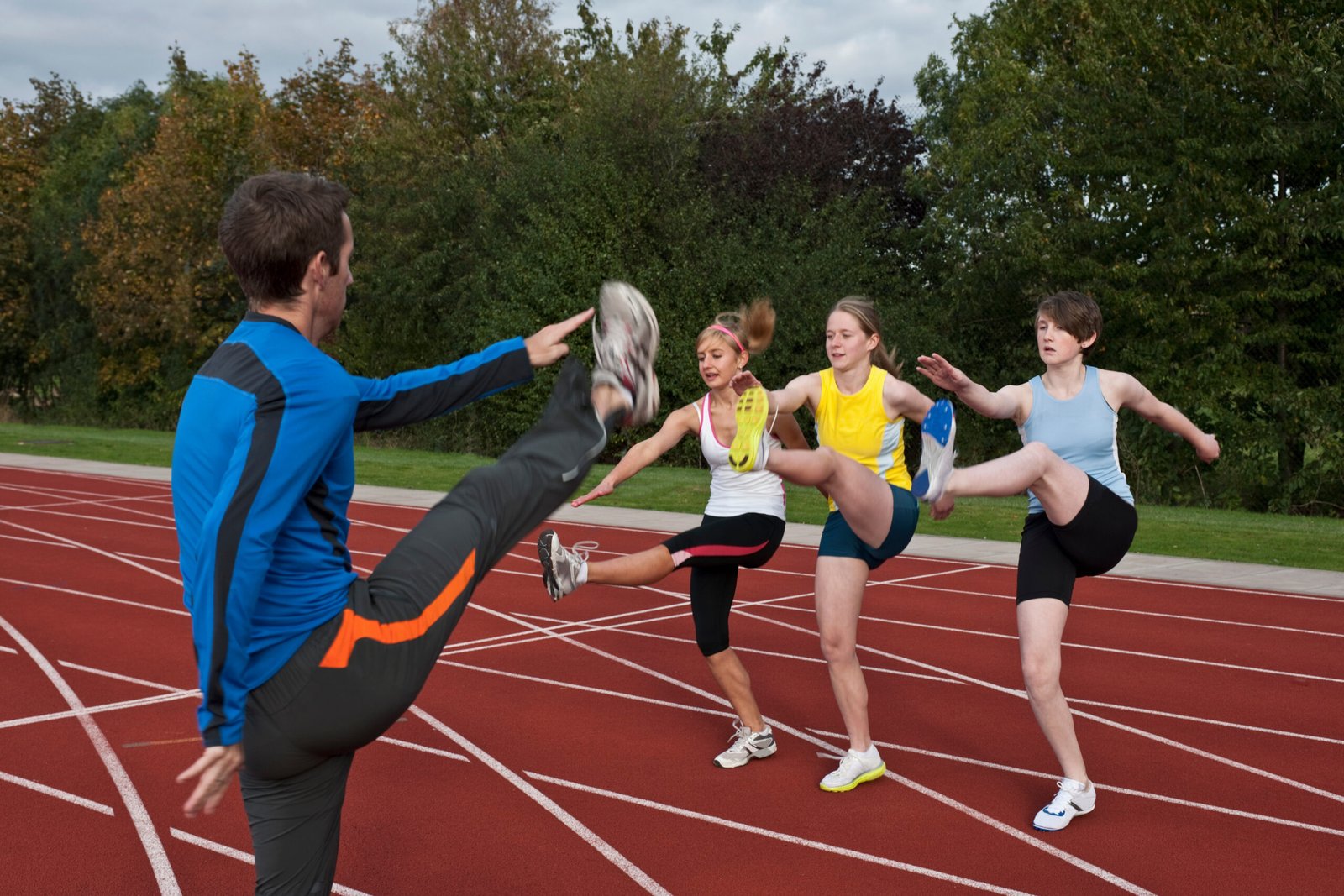In today’s hyper-connected world, our reliance on technology can be overwhelming, often infiltrating every aspect of our lives—including our athletic pursuits. This digital dependency can distract and detract from our natural capabilities and focus, especially in endurance sports that require substantial concentration and mental resilience. This reality underscores the importance of “Endurance Unplugged: How Disconnecting from Tech Can Enhance Your Long-Distance Performance.” This innovative concept champions the idea that reducing screen time and tech overload can significantly boost physical and mental performance, allowing athletes to unlock their true potential. As we dive into this blog, we explore the multifaced benefits of disconnecting from technology and how it can fundamentally enhance endurance and overall athletic performance.
5 Benefits of Disconnecting from Technology
| Benefit | Explanation | Actionable Tips |
|---|---|---|
| Enhanced Focus | Disconnecting from tech helps athletes focus better during training, leading to improved concentration and mental clarity. | – Practice single-tasking during workouts. – Use nature sounds instead of music. – Set specific goals for each session. |
| Better Sleep Quality | Limiting screen time, especially before bed, regulates circadian rhythms and improves sleep quality, leading to better recovery. | – No-screen rule 1-2 hours before bed. – Establish a pre-sleep routine. – Create a sleep-conducive environment. |
| Increased Mindfulness | Being unplugged encourages deeper self-awareness and mindfulness, improving endurance and performance. | – Practice meditation or yoga. – Focus on breath control exercises. – Use visualization techniques for performance. |
| Improved Physical Recovery | Reducing tech use helps lower stress levels, aiding faster recovery and preventing burnout. | – Designate tech-free recovery periods. – Engage in stretching or foam rolling. – Spend time outdoors for relaxation. |
| Strengthened Emotional Well-being | Disconnecting from tech helps reduce anxiety and stress, fostering a more positive mental state for training. | – Dedicate time for journaling or talking with a coach. – Focus on personal progress. – Set realistic goals. |
Enhanced Focus
One of the most profound benefits of disconnecting from technology is the enhancement of focus during training sessions. By minimizing distractions from buzzing phones and notification pings, athletes can concentrate solely on their activity, leading to greater mental clarity and a more immersive experience.
When athletes unplug from technology, they often find a noticeable uptick in their ability to focus intensely on their training. Without the constant intrusion of digital notifications, they enter a flow state more easily, where their mind is entirely absorbed by the task at hand. This heightened focus allows for more purposeful practice, improving technique, and executing training plans effectively. Furthermore, a tech-free environment helps athletes better connect with their surroundings and instincts, which are crucial in long-distance sports where external conditions and internal cues dictate the pace and strategy.
– Practice single-tasking during workouts to establish a deeper focus.
– Use nature or ambient sounds instead of music players for an immersive experience.
– Create specific goals for each session to maintain driving attention on performance metrics.
Better Sleep Quality
| Tip | Description | Additional Suggestions |
|---|---|---|
| No-Screen Rule | Limiting screen time 1-2 hours before bedtime helps regulate circadian rhythms and improves sleep quality, enhancing recovery. | – Avoid social media and notifications before sleep. – Use blue light filters if screen usage is necessary. |
| Pre-Sleep Routine | Establishing a calming pre-sleep routine promotes relaxation, such as reading, journaling, or meditating. | – Try gentle yoga or breathing exercises. – Avoid heavy meals or caffeine before bedtime. |
| Sleep-Conducive Environment | Create an environment that supports restful sleep by dimming lights, reducing noise, and ensuring a comfortable bed. | – Use blackout curtains or eye masks. – Keep the room cool and quiet for optimal sleep. |
| Track Sleep Quality | Monitoring sleep patterns can help identify areas for improvement and ensure better recovery. | – Use sleep apps sparingly and focus on personal well-being. – Review sleep patterns weekly for trends. |
In our digitally-driven age, quality sleep is often compromised by the habitual use of screens before bedtime. By disconnecting from technology, athletes can significantly enhance their sleep quality, setting the foundation for improved recovery and athletic performance.
Limiting screen time, especially before sleep, helps regulate circadian rhythms and melatonin production, promoting a more restful and restorative sleep cycle. Adequate sleep is essential for athletes as it’s the time when the body repairs itself, muscles recover, and cognitive functions refresh. Disconnecting can also reduce the cognitive load carried over from endless digital interactions, leading to improved mental tranquility before sleep. This tranquility enables more restful sleep, which translates into better energy levels, mood, and performance during training and competitions.
– Implement a no-screen rule 1-2 hours before bedtime to allow natural unwinding.
– Establish a pre-sleep routine involving activities like reading or meditating to signal the brain it’s time to rest.
– Create a sleep-conducive environment by dimming lights and reducing noise, enhancing relaxation.
Increased Mindfulness
| Strategy | Purpose | How to Implement |
|---|---|---|
| Breath Control | Focusing on breath control during training helps regulate effort and maintain stamina. | – Practice deep breathing before and during workouts. – Use specific breathing patterns to align with your stride. |
| Body Awareness | Developing awareness of your body during training helps you recognize signs of fatigue or injury. | – Tune in to your physical sensations during workouts. – Use body scans to check posture and alignment. |
| Visualization | Mental rehearsal prepares the mind for the physical challenge, improving performance and reducing anxiety. | – Visualize a successful race or workout. – Mentally simulate overcoming challenges during long-distance events. |
| Post-Workout Reflection | Taking time after each session to reflect helps you connect with your progress and track mental state. | – Write in a journal about your experience after each workout. – Note any physical or mental insights gained. |
Being unplugged encourages a more profound awareness of the present moment, fostering a stronger connection with one’s body and surroundings during exercise. This mindfulness can lead to significant gains in endurance.
In a world dominated by constant digital engagement, disconnecting allows athletes to practice being truly present, tuning into the subtleties of their breathing, body sensations, and environment. This heightened awareness aids in recognizing cues about fatigue levels or potential injuries, promoting safer and more effective training. As athletes become more attuned to their body’s signals, they can make adjustments in real-time to optimize performance and recuperation. Moreover, this practice cultivates a sense of tranquility and joy in the activity itself, further fueling motivation and passion.
– Incorporate meditation or yoga into weekly workouts to boost mindfulness.
– Focus on breath control exercises to enhance presence and mental agility.
– Use mental visualization techniques to prepare for the physical activity ahead.
Improved Physical Recovery
| Activity | Description | Benefits |
|---|---|---|
| Stretching | Engaging in stretching routines without digital distractions aids in muscle recovery and flexibility. | – Helps increase flexibility. – Reduces muscle stiffness. – Promotes circulation and overall recovery. |
| Foam Rolling | Using a foam roller to target muscle groups can help release tension and improve muscle recovery post-training. | – Relieves muscle tightness. – Improves blood flow. – Reduces risk of injury by preventing tight muscles. |
| Outdoor Relaxation | Spending time outdoors, such as in parks or natural settings, provides mental relaxation and physical benefits. | – Boosts mood through exposure to nature. – Reduces stress. – Helps replenish energy levels naturally. |
| Mindfulness Meditation | Practicing mindfulness meditation helps manage stress and promotes relaxation for faster recovery. | – Reduces mental fatigue. – Enhances emotional well-being. – Increases focus and mental clarity. |
Stepping away from tech reduces stress and tension, enabling more effective physical recovery and preventing burnout. Athletes who regularly engage in digital detoxification often find they are better equipped to handle both physical and mental demands.
Without the additional stresses of continuous connectivity, athletes can concentrate entirely on their body’s recovery needs. The absence of digital interruptions means that rest periods are fully utilized, promoting physiological recoveries such as muscle replenishment and decreased inflammation. Furthermore, the lower stress levels associated with unplugging contribute significantly to overall well-being, as prolonged stress can adversely affect recovery and performance. This holistic recovery approach helps athletes maintain their training intensity and frequency without risking the detrimental impacts of burnout.
– Allocate specific times in your training schedule for tech-free rest and recovery.
– Engage in activities like stretching or foam rolling without digital distractions.
– Prioritize outdoor relaxation, combining fresh air and natural light to enhance recovery.
Strengthened Emotional Well-being
| Benefit | Explanation | Implementation Tips |
|---|---|---|
| Reduced Anxiety | Disconnecting from digital noise reduces stress and anxiety caused by constant notifications and social media. | – Take regular breaks from social media. – Avoid checking emails or notifications immediately upon waking up. |
| Improved Emotional Balance | Stepping away from technology helps regulate mood and fosters a more positive state of mind. | – Spend time with loved ones or engage in meaningful offline activities. – Practice gratitude journaling regularly. |
| Enhanced Self-Esteem | Disconnecting from comparison on social media can promote a healthier sense of self-worth. | – Avoid comparing yourself to others on social platforms. – Focus on your personal growth and accomplishments. |
| Increased Resilience | Reducing digital dependency strengthens emotional fortitude by encouraging face-to-face connections. | – Build meaningful offline relationships. – Join groups or communities that foster emotional support in person. |
Taking breaks from technology supports mental health by reducing anxiety and fostering a more balanced, positive state of mind, which is crucial for endurance training. This emotional fortitude can be a game-changer in achieving peak performance and consistency.
Constant exposure to social media and digital notifications can increase stress and anxiety levels, potentially distracting athletes from their training goals. By disconnecting, athletes reinforce a healthier emotional state, free from the competition and negativity often encountered online. This shift promotes a more positive outlook on training, allowing athletes to engage more fully with their routines and goals. Furthermore, a balanced mental state cultivates the resilience needed to tackle the psychological challenges inherent in endurance sports, such as self-doubt and visualizing long-term success.
– Dedicate time each week to activities that promote emotional well-being, like journaling or talking with a coach.
– Remind yourself of the intrinsic joys and accomplishments that come with training, independent of digital validation.
– Set realistic, personal goals to focus on progress rather than external comparisons.
What is a Digital Detox?

A digital detox involves intentionally reducing or eliminating the use of electronic devices and technology to reconnect with oneself and the physical world. For athletes, this practice is pivotal in minimizing distractions and stress, which can cloud focus and impair performance.
By actively reducing tech usage, athletes can experience an increase in mental clarity that directly contributes to better endurance and performance results. Disconnecting from screens and devices allows athletes to step back from relentless information streams and notifications, offering a breather that refreshes their mental faculties and enhances cognitive function. Engaging in regular digital detoxes helps in establishing consistent sleep patterns and refining recovery routines, thereby feeding into overall enhanced performance levels.
– Start with short periods of tech breaks throughout the day, gradually extending them over time.
– Plan activities that involve nature or analog hobbies to ease the transition.
– Schedule detox periods during off-training days to maximize the recovery benefits.
What Are the Strength Benefits from Disconnecting from Technology?
| Tip | Purpose | How to Implement |
|---|---|---|
| Track Progress with Internal Cues | Focus on internal sensations (e.g., heart rate, breathing) instead of data from devices. | – Practice running or cycling without a watch or tracker. – Use perceived effort to gauge intensity. |
| Engage in Tech-Free Races or Workouts | Helps athletes focus on their physical abilities without relying on digital data. | – Organize or participate in races where no tech is allowed. – Use tech-free workouts to practice mindfulness and pacing. |
| Develop Natural Pacing Skills | Tune into the body’s natural rhythm to adjust pace without digital assistance. | – Focus on how your body feels at different paces. – Learn to adjust effort based on fatigue and breath control. |
| Listen to Your Body’s Signals | Tech-free training helps athletes become more aware of signals like fatigue, hunger, or dehydration. | – Take note of how your body feels during training (e.g., hunger, tiredness, energy levels). – Adjust hydration and nutrition needs on the fly. |
| Enhance Mind-Body Connection | Disconnecting from tech helps reinforce the connection between mind and body, improving overall performance. | – Practice focusing on your form, breath, and movements. – Use mindful techniques to stay present during workouts. |
When athletes disconnect from technology, they tap into a hidden reservoir of strength benefits that are both mental and physical. The absence of digital distractions fosters enhanced mental clarity and focus, reinforcing a more authentic engagement with physical activities.
This tech-free environment encourages athletes to pursue deeper self-awareness and mindfulness, essential for understanding personal endurance limits and capabilities. These improvements in mental clarity and focus bring about a natural increase in creativity and problem-solving, helping athletes overcome challenges and obstacles in sports and in life. Unplugging from technology also supports improved emotional well-being, crucial in maintaining consistency and high performance, as it alleviates the stress and anxiety associated with constant digital exposure.
– Practice deep breathing and mind-clearing techniques before starting your training session to ensure mental preparedness.
– Use reflective journaling post-workouts to identify insights and progress in training without tech interruptions.
– Designate a quiet space for workout preparation and completion, free from tech interference, to boost mental resilience.
What is the Main Focus of “Endurance Unplugged: How Disconnecting from Tech Can Enhance Your Long-Distance Performance”?
The main focus of “Endurance Unplugged” is exploring how reducing reliance on technology can elevate long-distance sports performance. By bypassing tech distractions, athletes can sharpen their focus and self-awareness, essential for excelling in endurance events.
“Endurance Unplugged” delves into strategies for reducing technological dependence and the profound impact it can have on athletes’ performance. By exploring various methods of unplugging, the book provides readers with tangible insights and actionable strategies to implement into their training routines. The discussions emphasize the importance of reconnecting with one’s body and environment as fundamental pillars of athletic development, inspiring athletes to unlock their fullest potential by melding mental clarity with physical capabilities.
– Engage with techniques outlined in the book, such as grounding exercises, to refocus attention during training.
– Apply natural pacing strategies highlighted in the text to sustain lasting energy and endurance levels.
– Explore detailed case studies within the book that illustrate the shift in mindset and performance for tech-free athletes.
How Does Disconnecting from Technology Potentially Improve Endurance and Long-Distance Performance?

Disconnecting from technology helps athletes focus more intently on their physical activities, free from the digital distractions that can undermine their performance. It allows for deeper introspection and visualization, enhancing endurance capabilities dramatically.
Without the constant barrage of notifications, athletes are able to engage with their natural rhythms and cues, facilitating better pacing and management of energy. Tuning into the body’s signals promotes the development of a more attuned sense of when to push harder and when to conserve energy, an invaluable skill in long-distance events. Enabled by tech-free environments, athletes bolster mental resilience and perseverance, necessary attributes for overcoming the inevitability of challenges faced during endurance activities.
– Allocate tech-free visualization sessions weekly to strategize and mentally simulate long-distance events.
– Incorporate tech-free races or practice runs occasionally to test endurance levels authentically.
– Practice listening closely to the body’s signals, adjusting speed and effort based on internal feedback, free from gadget inputs.
Are There Specific Strategies Mentioned in the Book for Reducing Tech Dependence During Training?
“Endurance Unplugged” offers specific strategies to integrate tech-free moments into training sessions, enhancing focus and mental resilience. These strategies are crafted to help athletes prioritize authentic connections with their body and exercise over technological conveniences.
Through these strategic incorporations, athletes are encouraged to rely less on digital devices and more on the natural feedback from their bodies. This shift in focus allows them to become more accountable and present, boosting mental and physical endurance. Additionally, the book underscores practicing mindfulness techniques during workouts to amplify awareness, and strength, and cultivate skills like patience and determination—crucial for performance improvement.
– Embrace nature-focused training styles, such as trail running, which naturally limits tech use.
– Use mindfulness cues during exercise, like focusing on breath, posture, or stride.
– Schedule biweekly tech detox days dedicated solely to physical and mental unwinding.
Can “Endurance Unplugged” Be Beneficial for Both Novice and Experienced Long-Distance Athletes?
“Endurance Unplugged” holds transformative benefits for both novice and experienced long-distance athletes who seek to enhance focus and mindfulness by reducing tech distractions. This benefit is universal, allowing athletes at any skill level to refine their performance through deeper engagement with their training.
Novice athletes can vastly benefit from unplugging by nurturing a keener internal sense of pace regarding training cadence and rhythm, fostering overall mental resilience. On the other hand, experienced athletes may find themselves rejuvenated and deeply reconnected with the pure joy of sport by unplugging, breaking the routine monotony that tech engagement can create. Without the digital noise, athletes at any level gain the ability to better listen to their bodies, reducing injury risks and burnout potential, while enhancing training enjoyment through simplicity and freedom.
– Apply book insights to design tech-free training camps or sessions to realign focus and intent.
– Encourage athlete-led discussions on tech use in training to recognize patterns and tendencies.
– Support cross-training practices where tech is naturally minimized to strengthen muscles and relieve cognitive load.
Does the Book Provide Any Evidence or Case Studies to Support the Benefits of Unplugging from Technology for Endurance Athletes?

“Endurance Unplugged” consolidates an array of case studies and evidence illustrating the positive effects of technology breaks on endurance athletes. These real-life examples demonstrate that reducing screen time can noticeably amplify mental clarity and focus.
The book meticulously presents data-backed insights and testimonials from athletes who have reaped performance improvements by integrating tech breaks. Case studies within the text provide compelling narratives showcasing the transformative effects of a tech-free approach, where athletes report a deepened connection with their surroundings and enhanced training satisfaction. The correlation between tech-free environments and lowered stress levels among athletes is highlighted, emphasizing the mental health benefits of unplugging, which contribute significantly to athletic performance and recovery.
– Review the case studies in detail to identify patterns and shared experiences in tech-free training success.
– Share experiential insights and best practices from the book with training partners or teams to create a supportive environment.
– Monitor and document personal progress during tech-off sessions to observe firsthand benefits and areas for growth.
Reconnect to Realize Your Full Athletic Potential
Unlocking your true potential begins with recognizing the inherent value behind disconnecting from technology. “Endurance Unplugged” underscores this powerful shift towards tech-free athletic endeavors, shining a light on the multifaceted benefits that athletes can harness by minimizing digital reliance. As we explore the practical insights and transformative experiences outlined in the book, it becomes evident that embracing technology breaks isn’t just a lifestyle change—it’s a crucial strategy for unlocking unprecedented levels of focus, recovery, and well-being. By nurturing this mindful approach, athletes are encouraged to engage more deeply with their long-distance activities, ultimately achieving greater joy, satisfaction, and performance in their pursuit of endurance excellence.













